


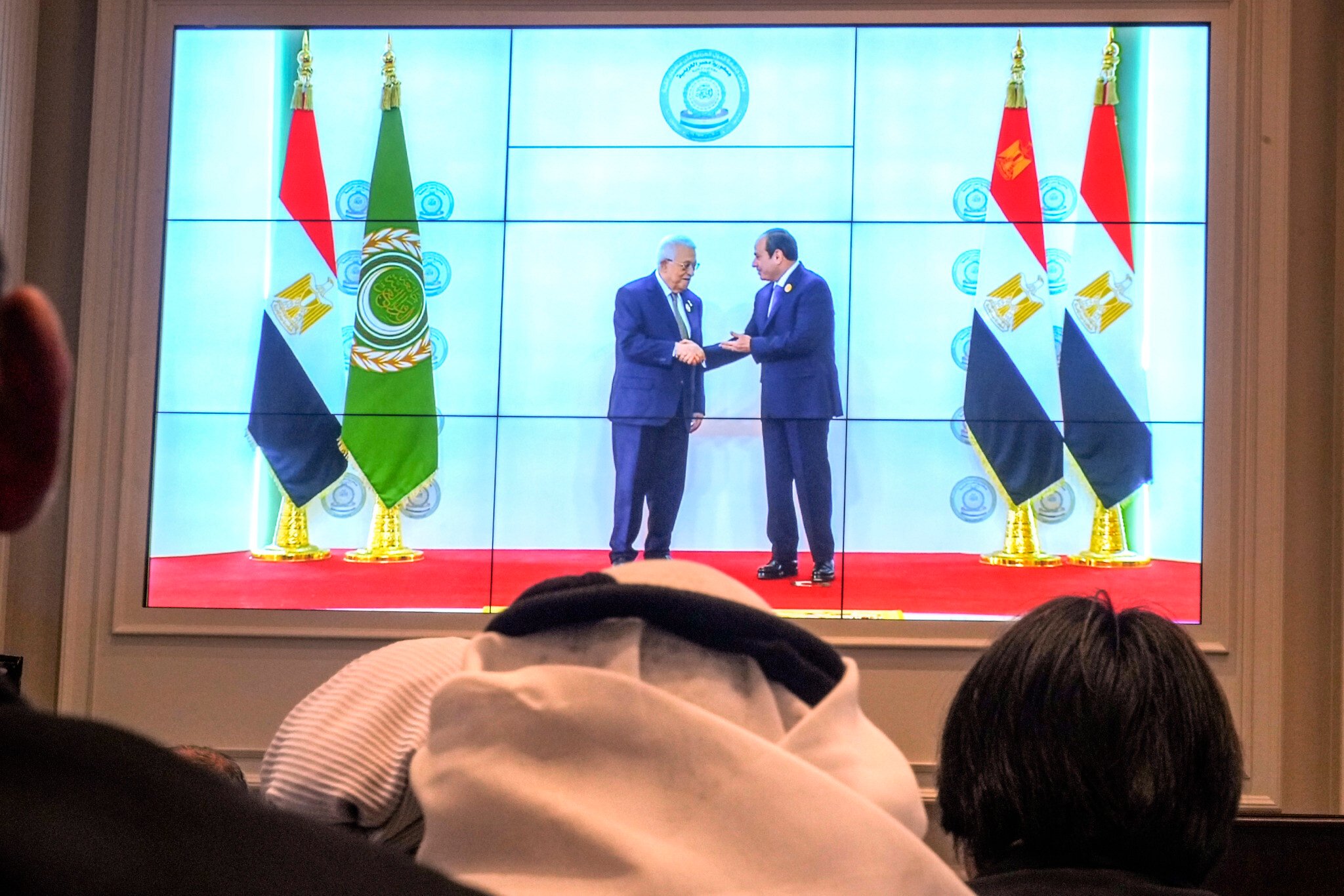
Kicking off the Cairo summit on the future of the Gaza Strip, Egypt’s President Abdel-Fattah el-Sissi stressed on Tuesday that his country’s reconstruction plan would allow Palestinians to remain in the war-torn territory.
He said that independent Palestinian technocrats unaffiliated with Hamas would run the Strip after an end to the war.
“There will be no true peace without the establishment of the Palestinian state,” Sissi said. “It’s time to adopt the launching of a serious and effective political path that leads to a permanent and lasting solution to the Palestinian cause according to the resolutions of international legitimacy.”
The Arab League summit on the territory’s reconstruction comes a day after Prime Minister Benjamin Netanyahu again gave his full-throated backing to US President Donald Trump’s plan to relocate the population of Gaza, calling it “visionary and innovative.”
Palestinians, along with the Arab world and many allies of Israel and the US, have condemned Trump’s proposal, rejecting any efforts to expel Gazans.
The emir of Qatar, Bahrain’s king, the vice president of the United Arab Emirates and Saudi Arabia’s foreign minister attended the Cairo confab, as did UN Secretary-General António Guterres.
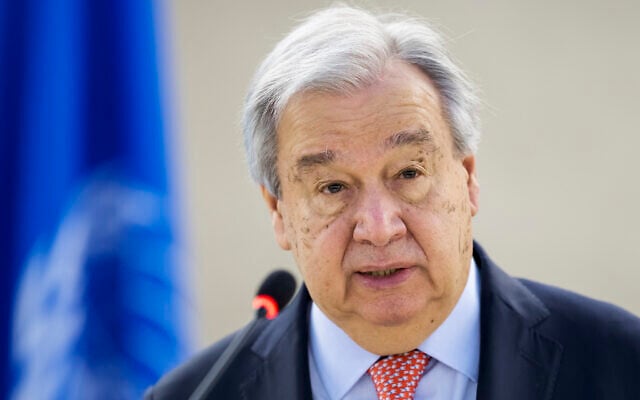
Guterres said he fully supports the Egyptian plan.
“I welcome and strongly endorse the Arab-led initiative to mobilize support for Gaza’s reconstruction, clearly expressed in this summit,” he said. “The UN stands ready to fully cooperate in this endeavor.”
Palestinian Authority President Mahmoud Abbas, also in attendance, said he too welcomes the plan. The 89-year-old — who has been ruling since winning the last Palestinian national elections in 2005 — said he is ready to hold presidential and parliamentary elections if circumstances allow, asserting that the PA is the only legitimate governing and military force in the West Bank and Gaza.
Abbas has repeatedly promised to hold elections and then backtracked over the years.
Trump triggered surprise and indignation when he first floated his idea last month for the United States to “take over” the Gaza Strip and turn it into the “Riviera of the Middle East” while forcing its Palestinian residents to relocate to Egypt, Jordan and elsewhere.
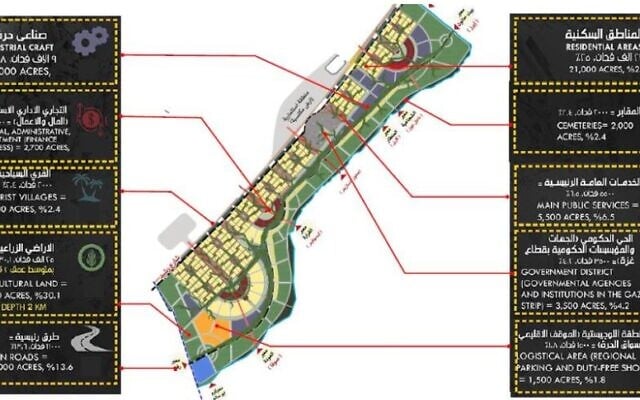
Trump has since appeared to soften his stance, saying he was “not forcing” the plan, which experts have said could violate international law.
Netanyahu has embraced the plan, however, saying that Israel is “committed” to it. Working groups have begun fleshing out the plan, Israeli officials told The Times of Israel.
The Egyptian plan, called “Early Recovery, Reconstruction, Development of Gaza,” is based on “preserving the rights, dignity and humanity of the Palestinian people, and on the horizon of a two-state solution.”
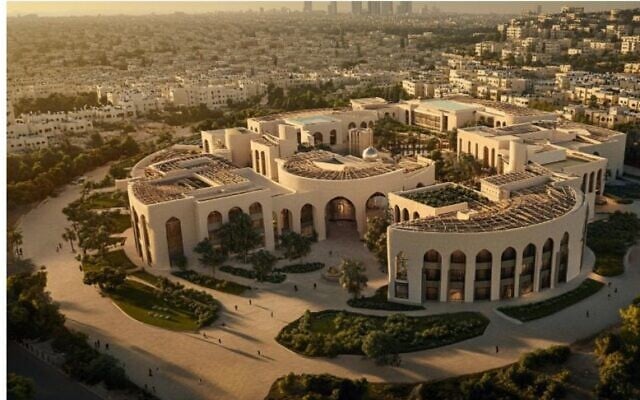
The Egyptian proposal says it is “illogical” to ignore Palestinians’ desire to remain on their land. It also calls for the continuation of the ceasefire between Israel and Hamas, and the release of Israeli hostages and Palestinian prisoners.
The Egyptian document, reviewed by The Times of Israel, envisions a Gaza Administration Committee, made up of independent technocrats, to manage an initial six-month transitional phase. It also urges elections in all Palestinian areas within a year, if conditions support such a move.
Using colorful AI images, it envisages a series of modern living spaces, agricultural zones, commercial centers and government complexes throughout the Strip. An airport and seaport would also be constructed, according to Egypt’s plan, which would continue until 2030.

Hamas spokesman Hazem Qassem said that the terror group will only accept an Arab-led plan for postwar reconstruction of Gaza that wins the support of Palestinians in the enclave, rejecting “external forces” determining the future of the Strip.
“Our position is clear, any plans for Gaza’s future… must be reached through national consensus, and we will facilitate the process,” Qassem told Turkish news outlet Anadolu.
The plan doesn’t explain what Hamas’s fate would be, and how to prevent the terror group from intimidating officials or firing rockets at Israel.
It does call for Egypt and Jordan to train Palestinian police, and a draft version encouraged the examination of an international force in the West Bank and Gaza.
In the medium term, Israel and the Palestinian Authority would negotiate final status issues.
The early recovery phase would last six months and cost $3 billion, followed by a five-year reconstruction phase at a cost of $53 billion.
The plan takes its inspiration from the reconstruction of Hiroshima and Berlin, cities devastated by Allied attacks in World War II. They are now thriving, modern cities.
Despite lacking solutions to fundamental challenges like Hamas’s role, the ambitious plan is concerned with issues like walkability, green buildings and smart cities.
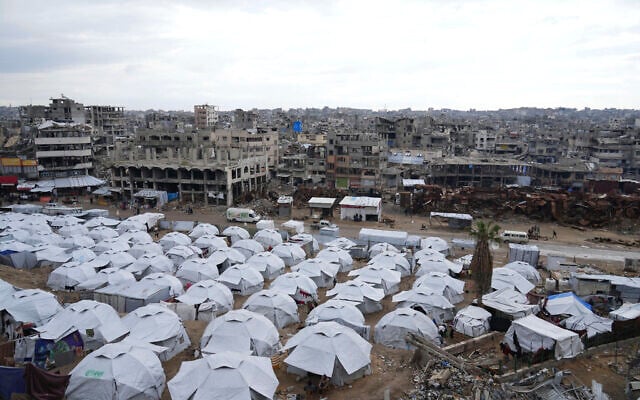
It also doesn’t leave the Mediterranean resorts only to Trump’s plan. The Egyptian program also calls for resorts and tourist villages on the beach.
It plans for 120 hospitals and clinics to be constructed across the Strip.
The Cairo summit is taking place as Israel and Hamas find themselves at an impasse over the future of a fragile hostage-ceasefire deal that began on January 19.
The ceasefire’s first phase saw 33 Israeli hostages released, eight of them dead, in exchange for nearly 2,000 Palestinian prisoners, including many convicted terrorists serving hefty jail sentences. Five Thai nationals held hostage in the Gaza Strip were freed separately during that period.
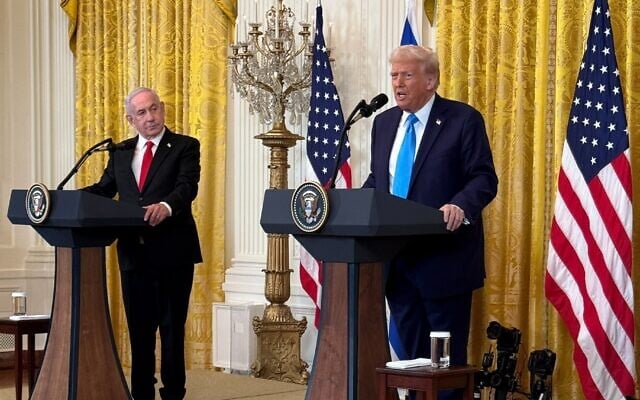
While Israel said it backed an extension of the first phase until mid-April — including the release of the remaining 59 hostages in two batches toward the beginning and end of the Ramadan and Passover holidays that run through March and until April 19 — Hamas has accused Israel of violating the original deal and has insisted on continuing to the second stage.
Netanyahu on Monday warned Hamas that “there will be consequences that you cannot imagine” if the hostages still held by terrorists were not released.
A senior Hamas official, Osama Hamdan, accused Israel of actively sabotaging the ceasefire, calling its push for an extension “a blatant attempt to… avoid entering into negotiations for the second phase.”
AFP and AP contributed to this report.
